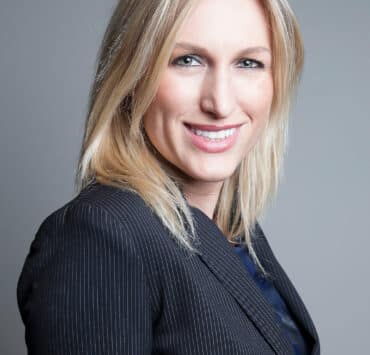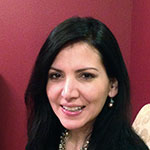Maria Harper-Marinick remembers the first time she stood in an American library. Never having attended a school with one of its own, the six floors of books at Arizona State University were a wonder to behold. The idea that she could read any title she wanted without restriction or reprimand was a game-changer. Her plans to return to her native Dominican Republic were traded for a future of education and leadership in the United States. But while she remained here, she never forgot the experiences that opened her eyes in the Dominican Republic to the injustices that encouraged her to fight for education, no matter where she lived.
“My immigrant story isn’t typical,” Harper-Marinick says of the privileged upbringing and academic scholarship that color her backstory. “I wasn’t persecuted or hungry as, unfortunately, many immigrants are. I came to the United States never intending to stay.” Growing up in a time of national transition in the Dominican Republic, she was raised in a household that knew the benefits of the educated class. As her country’s government found footing somewhere between dictatorship and democracy, public education weakened.
“The transition created an even more disparate, classist society,” says Harper-Marinick, “and those who couldn’t afford or access education were the people serving the higher class.” The maids who tended her home were smart with immeasurable potential, but their agency was limited. That disparity was clear even to a high-school-aged Harper-Marinick, and it cultivated in her a passion for education and social justice.
For more than two decades, Harper-Marinick has been helping students of all social and economic backgrounds access higher education within the Maricopa Community Colleges system. From the office of the executive vice chancellor and provost, she has the leverage at both the institutional and state levels to influence policy, support programs, engage with the community, and harness the resources necessary to meet changing student and commercial demands. As with any community college, the objective is not selectivity, but inclusivity. Maricopa meets students where they are, whether remedial or university-bound, and extends to them the choice of a college education—not just the dream.
Offering curricula that match the needs of Arizona’s smart economy is an essential piece of that equation. The type of industry in the region determines the level of education its people need, and “for the great majority of those jobs providing upward mobility,” says Harper-Marinick, “job seekers need some post-secondary education.” It’s not just the doctors and engineers who have to earn their credentials, but the 10 technicians supporting them as well. To gauge the professions available to its students, Maricopa holds advisory councils. These are comprised of leaders from the local industries, offering school-to-work transition advice and insight into which career tracks are most in demand.
Dropout rates are a challenge faced by many community colleges, so Maricopa has provided motivation, support, and preparation to Hispanic and Native-American students with great success for decades.
Harper-Marinick herself has become an advocate of the Hermanas: Diseña Tu Futuro conference, a program for middle-school- and high-school-age Latinas to expose them to the rewards of a satisfying, attainable career in science, technology, engineering, and/or math (STEM). Harper-Marinick stresses to the young women, “we need to make sure our choices become ‘and’ choices, not ‘or.’” In a culture that emphasizes motherhood and family ties, she says, Latinas need to realize they have the freedom to pursue their dreams both at home and at the office. “Others don’t get to determine who we are or get to be.”
The conference is one way the provost can see mirrored in the eyes of young Latinas the same liberation she experienced in the library at Arizona State University the day she realized that America was the place where she could be her true self.
It is rewarding when her students return from graduate school to tell her that the program opened up their eyes to a world of opportunity. It’s those testimonials that attest to the potential Harper-Marinick sees in every student. “As Hispanic professionals, we can communicate, we can educate, and we can support our communities to ensure there is access for all.”

